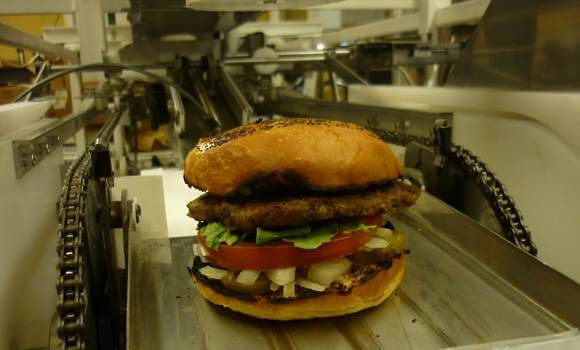- enjoys exploring the details of programmable systems and how to stretch their capabilities
- programs enthusiastically (even obsessively)
- is an expert or enthusiast of any kind
- is one who enjoys the intellectual challenge of creatively overcoming or circumventing limitations.
- believes that information-sharing is a powerful positive good, and that it is an ethical duty of hackers to share their expertise by writing open-source and facilitating access to information and to computing resources wherever possible.
Of course, we've all seen the power of the hacker ethic in the world of computers. The original hackers included the likes of Tim Berners-Lee (a key architect of the internet), Marc Andreessen (Netscape), Steve Wozniak (Apple), and Linus Torvalds (Linux). Their philosophy has been the driving force behind innovations like the personal computer, Linux, Ubuntu, Wikipedia, and the internet itself (it is basically the the same philosophy that made science so powerful).
Many professors, teachers and administrators have always operated this way. I think of closet eduhackers like Ian Guch, who posts a profusion of chemistry worksheets and an online textbook for free use at his Cavalcade o' Chemistry website. I think of a former colleague of mine, Nicole Waicunas, who's passion for helping students and outside-the-box style is inspiring. And I think of Salman Khan and his game-changing website. Whether in their enthusiasm and passion, their out-of-the-box, unorthodox creativity, or their openness and generosity, they embody the hacker ethic. And then there are the big names, like Ken Robinson, Pekka Himanen, Pasi Sahlberg, and Andy Hargreaves--people trying to hack the whole system. And why not? Isn't that what the hacker ethic is all about--improving the system for the sheer joy of doing so for the benefit of all? "School" is just a system, not unlike a computer program--a system with all sorts of rules and procedures and traditions and habits and red tape and hierarchies and deeply ingrained beliefs.
We can argue about how well the system is doing, but one thing we can't argue about is this: it can be improved. In fact, it's due for a radical rewriting of the software. The hierarchical, factory model is woefully inadequate (if it ever was adequate) in today's headlong, digital, global, exponentially changing, "whitewater world." The hacker ethic demands that the educational system be hacked, and hackers may even have provided us with a model for the change.
The powerful open source model that hackers employ means anyone can tinker with the "code" and submit their improvements to the larger group. If people like it, it gets incorporated into the system. Interestingly, it implies decentralized, rather than hierarchical organization, and empowers each individual equally. It's based on real, voluntary, social cooperation.
John Robb sees the same thing happening to government. In a recent interview with the Foundation for Economic Education, he said, "The technology is changing, and so will the methods of organizing life. Until recently, we've relied on 'bureaucracy' and 'markets' to manage and allocate resources (more or less depending on the ideology employed)." But, he added, "One of the 'new' organizational methods we see will likely be based on P2P (think in terms of BitTorrent and BitCoin)."
I'm convinced that the more power and autonomy you give to individuals, the more their potential will be released. But I'm also convinced that the more people cooperate, the more their potential will be enhanced. The hacker model does both, and the application of the hacker model to education it could go even further.
We could also use this idea to create a generalized Net Academy, in which all study materials would be free for use, critique, and development by everyone. By improving existing material in new directions, the network would continuously produce better resources for the study of the subjects at hand. Members of the network would be driven by their passions for various subjects and by the peer recognition for their contributions.
Logically, the continued expansion and development of this material, as well as the discussion and examination of it, would also have to be the net Academy's only way to grant study credits; and, true to the spirit, the highest credits should be given for those accomplishments that prove the most valuable to the entire learning community...
In the Net Academy, every learning event would permanently enrich all other learners. Alone or in the company of others, the learner would add something to the shared material.
Whether it will be Himanen's model or something else, no one can tell. That's the nature of paradigm shifts. But one thing's for sure, it will change--and for the better. And wherever it leads,
*A hacker is not to be confused with a computer cracker ("a malicious meddler who tries to discover sensitive information by poking around"), but the kind of hacker who creates for the sheer joy of seeing people benefit from her work.





